Our engineering services will get your products to launch.
Engineering: From concept to manufacturing
Engineering is our passion
Engineers can be known for being "naysayers." Our passion is in product engineering—over two decades. From novel skin cancer lasers to baby strollers, we say "yes" to your vision with creativity and technical prowess.

Mechanical Engineering
Our MEs – mechanical engineers participate in all steps of the product development process from research, conceptualization, mechanical design, analyzing, prototyping, testing, sourcing, and supporting a smooth transition into manufacturing.
-
Engineering Prototyping
-
Mechanical Design
-
Commercialization
-
Test Engineering

Electrical Engineering & Firmware
Our EEs – Electrical Engineers are always proving out technological, mechanical, and electrical solutions, we rapidly and rigorously move product ideas to launch with deep expertise in:
-
Systems thinking and approach
-
Electrical hardware development
-
Embedded software and firmware

Prototype Development
Models and prototype development propel the iterative design process, bridging the gap between vision and reality. We have 20,000 sf space with an in-house shop space to create, evaluate, and reiterate:
-
Complex CNC Machining (including 3-axis, 4-axis, and turning)
-
3D Printing
-
Manual Machining
-
Silicone Molding – Urethane Casting

Quality Engineering
Design Catapult is committed to providing exceptional product design and development services to our medical and medtech clients. Adhering to working in accordance with ISO 13485:2016 and FDA regulatory requirements. Our Quality management system ensures compliance with ISO-13485 and enables clients to:
- Streamline their supplier certification process, laying the groundwork for a successful FDA submission;
- Utilize our design control process while theirs is still under development.
The Path to Successful Product Manufacturing
Introduction
Product manufacturing is the final step in turning ideas into tangible products. It involves refining designs and ensuring they meet quality, functionality, and market demands. In this blog, we’ll explore the key elements of successful product manufacturing, from engineering to prototyping and production scaling.
The Role of Engineering in Product Manufacturing
Engineering is essential in product manufacturing, bridging the gap between design concepts and the real world. It involves taking innovative designs and applying scientific principles to create functional and feasible products. This process ensures that the product can be efficiently and effectively produced, all while maintaining high standards of quality.
- Product design and engineering work together to ensure feasibility and durability.
- Engineers help optimize materials, reduce production costs, and enhance product performance.
- Every engineering decision made at this stage impacts the product’s marketability and longevity.
For more on engineering principles, check out this Wikipedia article on engineering.
Prototyping and Testing: Essential Steps in Product Manufacturing
Once the design has been refined and engineering specifications are in place, prototyping comes into play. Prototypes are essential to verify the functionality, usability, and quality of a product before it enters mass production. Prototyping allows manufacturers to test the product in real-world scenarios and make adjustments as needed.
- Prototypes are used to identify potential design flaws and assess material compatibility.
- Testing the prototype ensures the final product will meet the required safety standards and consumer expectations.
- Multiple rounds of prototyping may be necessary to finalize the product.
Prototyping is often a key part of engineering programs, such as those taught in universities, including resources like Stanford’s Engineering Department.
Production Scaling and Final Manufacturing
After successful prototyping and testing, the product enters the scaling phase of manufacturing. Scaling production involves setting up systems to mass-produce the product efficiently. It requires careful planning to ensure that each unit maintains the same level of quality while reducing production time and costs.
- Scaling ensures that manufacturing can meet demand without compromising product integrity.
- Automated processes and supply chain management play a crucial role in scaling.
- Final production is all about precision, efficiency, and delivering on time.
Ready to bring your product to life through quality manufacturing? Contact the experts at Design Catapult to get started today. Reach out to us!
